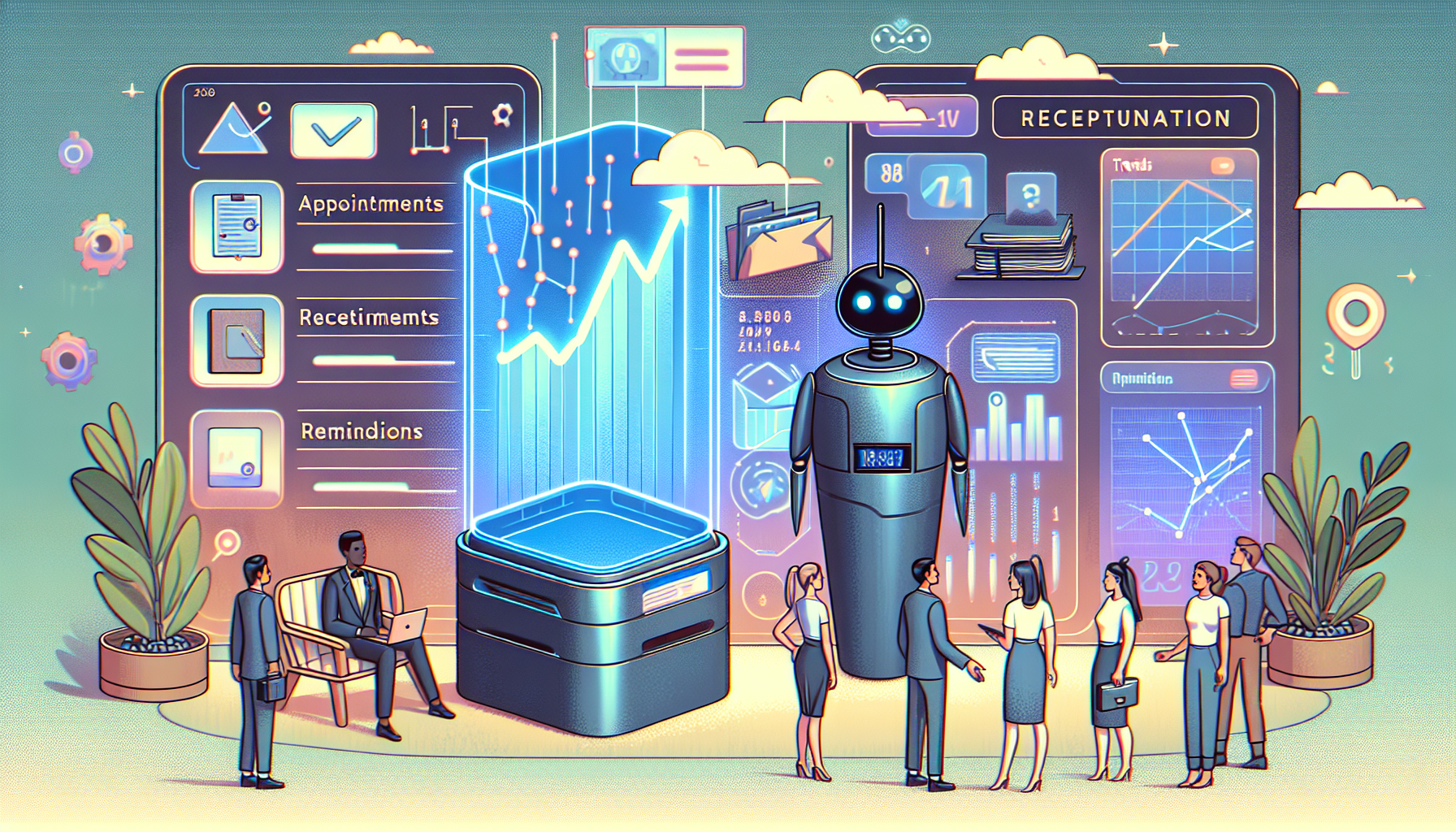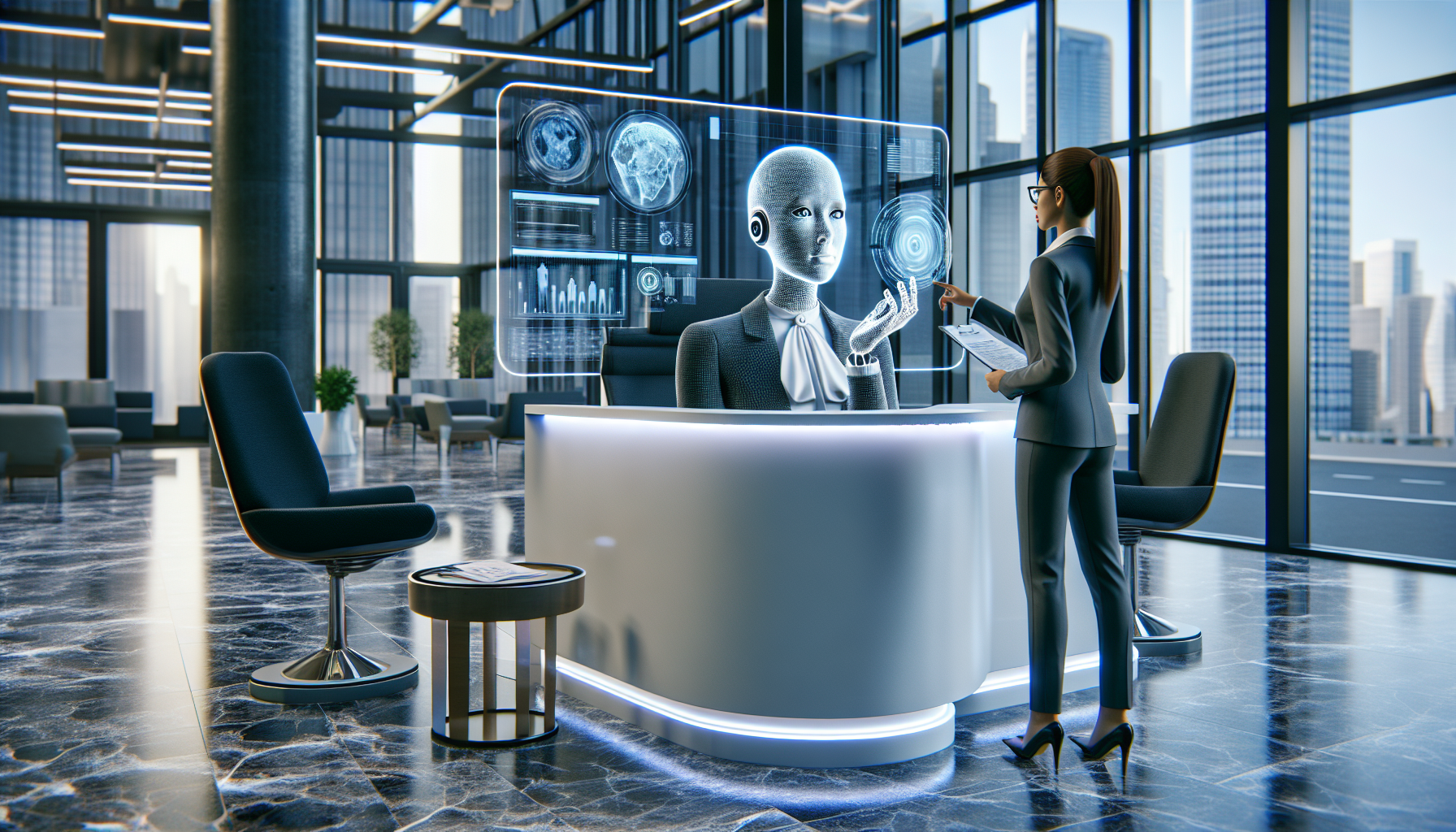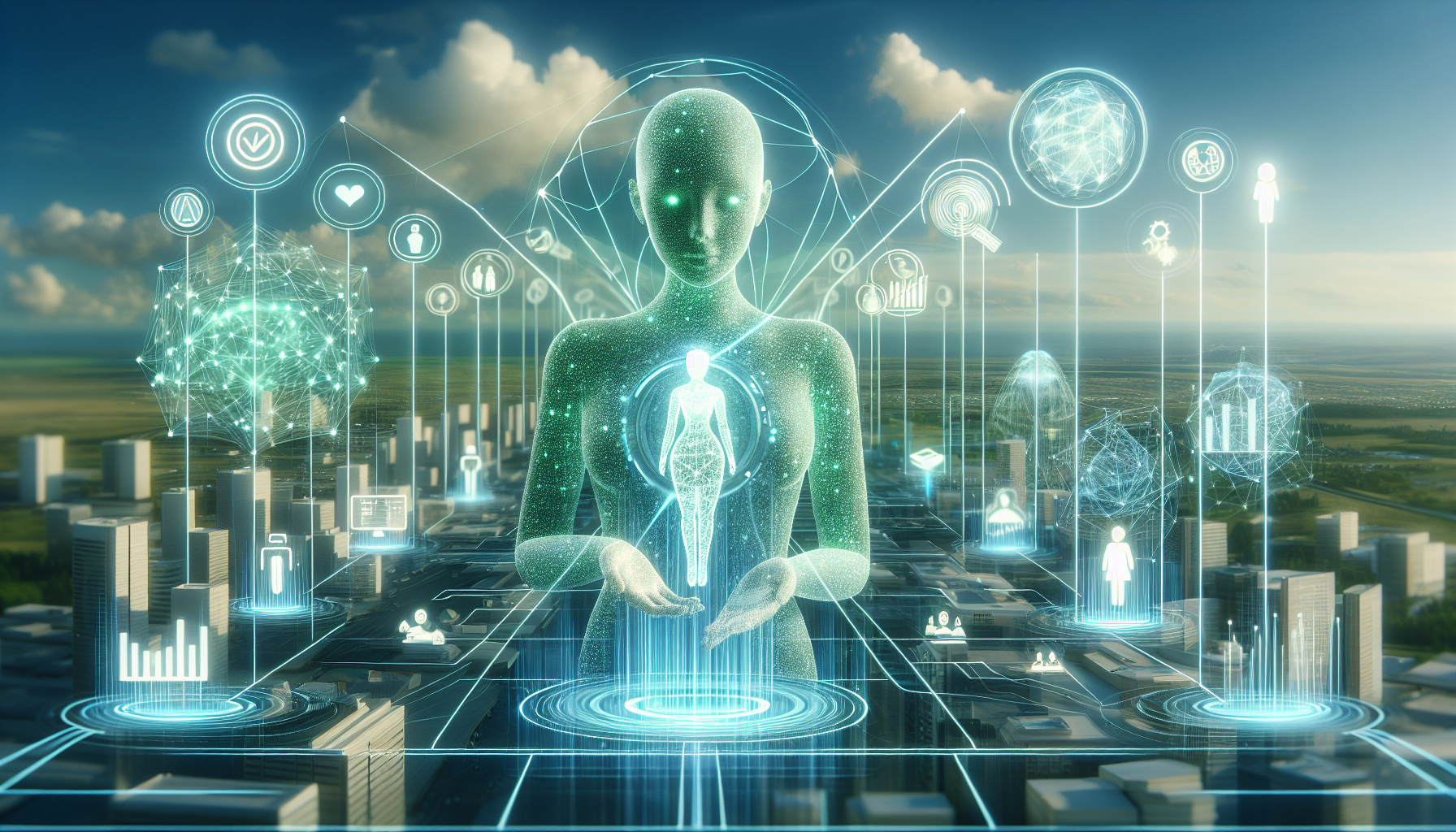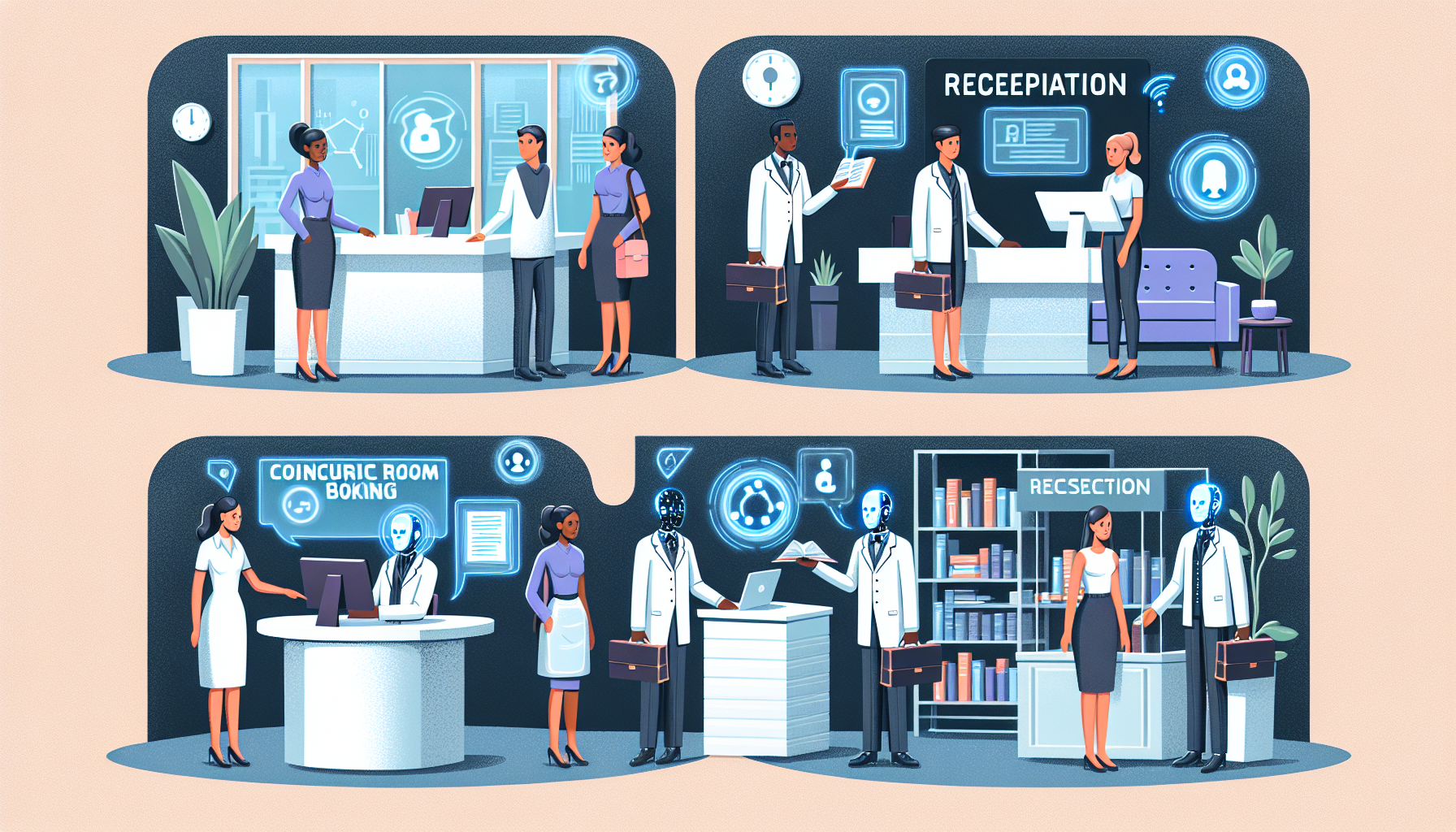
The advent of artificial intelligence (AI) and machine learning (ML) technologies has had a profound impact on every sector, and business establishments have not been left behind. AI receptionists have come into the scene, transforming the traditional concept of front desk management. Unlike human receptionists, AI receptionists can handle multiple tasks at the same time, provide information efficiently, and reduce common reception desk bottlenecks. However, just like any technology, AI receptionists have their limitations.

Currently, AI receptionists are primarily powered by robust technologies such as Watson Assistant and Google's Dialogflow. These technologies make it possible to automate numerous tasks typically performed by human receptionists. AI receptionists can schedule appointments, answer general inquiries, direct calls, and even order office supplies. They excel in providing 24/7 service, without break, sick day, or human error. This increases operational efficiency, improves customer service, and saves costs.
However, AI receptionists are not without their limitations. They currently struggle with more complex tasks that require a degree of creativity, empathy, or critical decision-making skills. For instance, an AI receptionist may not be equipped to handle customer discontent or the subtleties of human communication and emotion. Plus, there's the issue of data security risks associated with these technologies. Therefore, many businesses still prefer to supplement AI with a human touch in their front-desk management.
In conclusion, AI receptionists have already started reshaping the front desk of businesses, but they have not yet completely replaced their human counterparts. The extent of their impact in the future largely depends on how AI and ML technologies evolve to overcome their current limitations.
```As we continue to push the boundaries of what is possible with Artificial Intelligence (AI), the role of AI receptionists is set to become increasingly complex and integral in businesses worldwide. Whether greeting visitors, making appointments, or fielding calls, AI receptionists stand at the forefront of customer interaction. Their evolution can be attributed to several innovative technological advancements, including progressive AI algorithms and enhanced Natural Language Processing capabilities.
AI algorithms have grown substantially more sophisticated, allowing for more refined interactions between humans and machines than ever before. As asserted by IBM, the future signifies a shift towards contextually aware AI. This means a receptionist AI capable of understanding complex queries, predicting user needs, and facilitating interactions that feel innately human. Such complex user-machinery interactions are expected to increases client trust and overall satisfaction levels.
With the gradual improvement to Natural Language Processing (NLP), AI receptionists are becoming capable of understanding and responding to common human phrases and sentences, which has been a long-standing challenge for AI developers. Today, companies like Dialogflow are heavily investing their resources in overcoming language barriers across the globe. The goal is to create an AI receptionist not only capable of responding to users in their preferred language but also comprehending regional dialects and colloquial phrases.
Moreover, machine learning improvements are contributing massively to the advancement of AI receptionists. Through this process, receptionist AI learns from each interaction, gradually improving their responses. Consistent feedback and iteration help the system self-learn and adjust. This could very well mean that one day, your AI receptionist may know your business better than any human coworker. Google AI and Facebook AI are just a few examples of companies investing considerably in improving machine learning capabilities for wider application, including AI receptionists.
In conclusion, the Future of AI Receptionists is one rife with potential and growth. Technological advancements, such as next-generation AI algorithms, NLP, and machine learning, are not just transforming AI receptionists' capabilities but also redefining interactions between humans and machines. This evolution of AI receptionists is anticipated to significantly enhance the user experience and empower businesses to operate with unmatched efficiency.
As automation and artificial intelligence continue to evolve, businesses are tapping into their potential to cut costs and streamline operations. One area we're seeing significant strides forward is the advent of AI receptionists. Going beyond mere answering machines, AI receptionists are increasingly becoming sophisticated, handling tasks seamlessly that were once the sole domain of human counterparts.
The future, therefore, hails even greater integration of AI receptionists with various business ecosystems, including Customer Relationship Management (CRM) tools, workflow systems, and other business management software. This integration is poised not just to provide seamless service but also foster profound business operation integration.

Imagine a scenario where an AI receptionist handles an incoming call from a customer. This AI-powered system not only takes down the basic details of the customer but uses its integration with the CRM tool to recall past transactions and interactions of the customer with the business. It leverages this wealth of information to offer timely, personalized, and compelling assistance to the customer, thereby boosting customer satisfaction and brand loyalty.
Such AI receptionists, coupled with workflow systems, can easily sort inquiries, feed them into the appropriate pipelines, and alert relevant staff, thus ensuring that each inquiry is promptly attended to. Furthermore, integrating AI receptionists with business management software could take us to a time when mundane and repetitive roles are entirely handled by AI, leaving human resources free to focus on higher-level tasks that require creativity and human judgement. The result is a business model that is not only efficient but also offers higher value to its customers.
As technology advances, the integration capabilities of AI receptionists will only improve, and the time might not be far when we see business operations being fluently orchestrated by AI. Thus, the presence of AI receptionists is more than just a technological trend; it's a glimpse into a future where AI forms the backbone of the business landscape.
The proliferation of artificial intelligence has significantly impacted various industries, and the customer service sector is no different. One of the most promising trends in this domain is the advent of AI receptionists.
AI receptionists are poised to offer round-the-clock availability, transforming the conventional time constraints associated with human receptionists. This ensures customer queries are addressed promptly and efficiently, without the usual lags associated with non-business hours or public holidays. Thus, this non-stop availability of AI receptionists fosters continuous customer engagement and a better service turnaround time. You can find more information about AI receptionists' availability here.
Additionally, AI receptionists have the potential for superior customization. They can learn and adapt according to individual customer behaviors and preferences, creating a more personalized experience over time as they continue to interact with the same customers. Through machine learning algorithms and deep learning techniques, AI receptionists can provide specific solutions tailored to individual needs, thus enhancing the overall customer experience.
The most intriguing future trend of AI receptionists could be their ability to mimic human interactions in a more personalized way. AI platforms are becoming more sophisticated with their language comprehension abilities, and these systems can now understand context, sarcasm, and nuances of human conversation. Thus, AI receptionists can interact with customers in a more human-like manner, thus enriching customer interactions. You can glean more insights about personalized customer interactions here.
In conclusion, AI receptionists will redefine the future of customer service. With their promise of 24/7 availability, customized service ability, and personalized interactions, they are set to elevate the standard of customer service. While their advent might impose new challenges and raise certain concerns, the potential advantages they offer are certainly worth the exploration and development.
As we enter the new decade, the future of AI Receptionists is poised to transform diverse industries, underpinning the exponential advancement in AI technology. The demand curve for AI receptionists is moving steadily up the graph, heralding a new epoch in business communication and customer service.

Among industries striving for innovation, the healthcare segment is showing great promise. Leveraging AI’s exceptional capabilities for managing appointments, sorting medical records, and facilitating patient-doctor communication, it’s anticipated that AI receptionists such as PathAI will lessen the administrative strain on healthcare professionals while increasing efficiency. Patients, in turn, will experience more responsive care and seamless interactions.
In the hospitality industry, where customer interaction is a major asset, AI receptionists are predicted to redefine guest experiences, performing tasks from check-in to requests for amenities, and providing instant information. Prominent sectors like banking and finance and education are not far behind in incorporating AI receptionists to handle high volume transactions and inquiries, thus, decluttering the labyrinth of customer service.
According to MarketsandMarkets, the AI market will grow to $190.61 Billion by 2025, a testament to the rapid acceptance of AI solutions across different business verticals, including AI receptionists.
While unpredictable variables could potentially impact team adoption rates, there's a general consensus among experts that the exponential rise of AI solutions such as AI receptionists will shape the future of business communications. However, the pace of adoption will largely depend on companies’ willingness to embrace change and their resilience to propel a digital transformation agenda.
```As AI Receptionists become increasingly prevalent, there are several potential challenges and ethical considerations that must be addressed.
Fundamentally, the largest concerns surround privacy and data security. As AI receptionists handle sensitive information, there is a heightened risk of data breaches. These virtual agents collect and process substantial amounts of personal and business-related information. Therefore, developers and users must ensure that these AI systems operate in strict accordance with data protection and privacy laws. Companies like IBM Watson are already working on creating secure AI frameworks, but the threat remains significant.
Job displacement is another potential challenge. While AI receptionists can provide numerous benefits including increased efficiency and cost reduction, there's a growing concern that they could render human receptionists jobless. How society manages this potential job displacement will be a major factor in the Future of Work according to the World Economic Forum. While some argue that AI will create new types of jobs, the transition may not be easy for those displaced.
Moreover, there is a significant ethical dimension to consider. Albeit AI receptionists operate based on pre-defined algorithms, they are essentially devoid of emotions and ethical judgment. This could become problematic in situations where a human touch and understanding are crucial.
AI receptionists must also overcome the challenge of fully understanding natural language. Despite technological advancements, machines still find it hard to completely comprehend the complexity and nuances of human conversation.
While the future of AI receptionists is undoubtedly promising, it is paramount that these challenges and ethical considerations are addressed to safeguard both individuals and businesses. The ethical and humane use of technology remains a collective responsibility.
Start your free trial for My AI Front Desk today, it takes minutes to setup!








